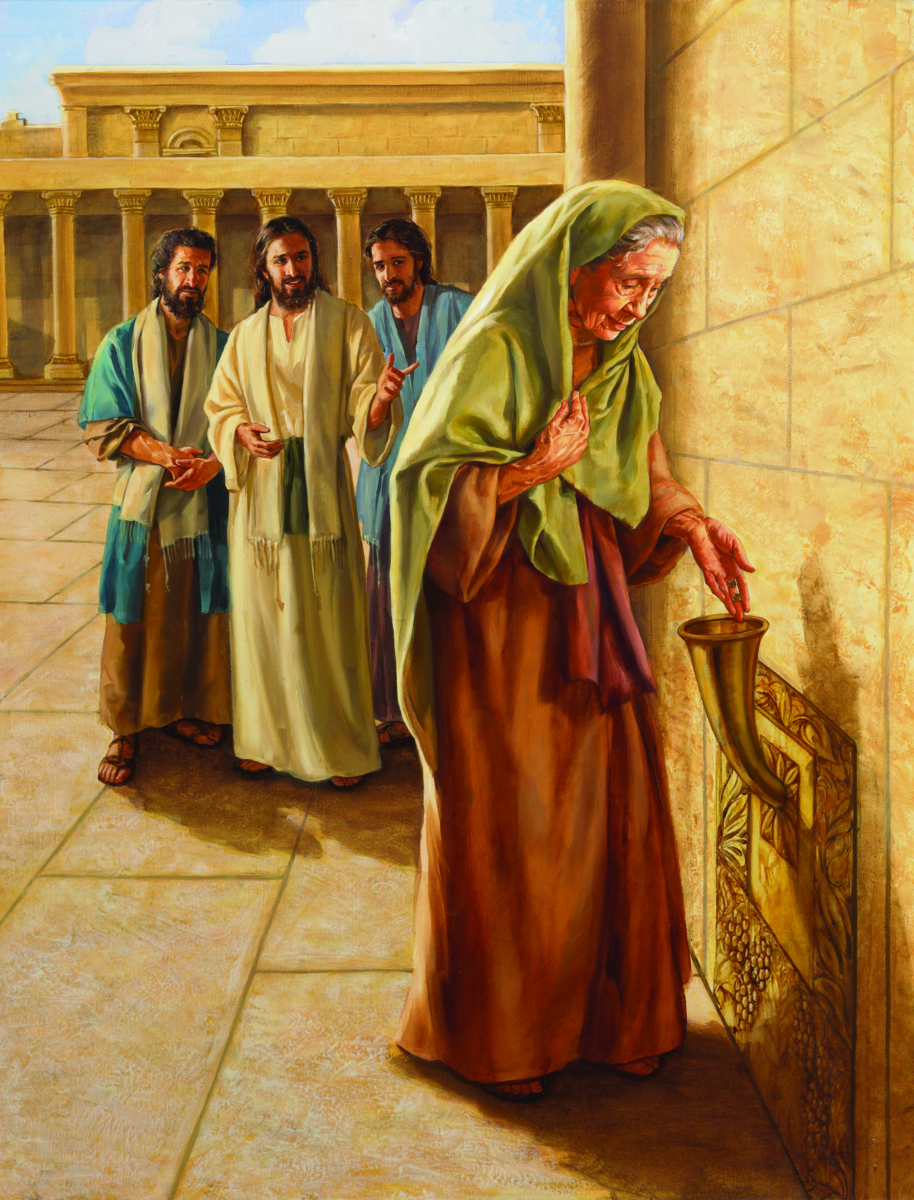The text for this lesson is Mark 12:41–44
Key Point
- The Holy Spirit helped a poor widow give a rich offering. The Holy Spirit helps me do good works too.
- Law: I do not rely on God or credit Him with the things I have; therefore, I give offerings or serve others sparingly, reluctantly, or for the wrong reason.
- Gospel: For Christ’s sake, God forgives my sinful motivations and, through the power of the Holy Spirit, makes my works into good and holy acts that please Him.
Context
- This event is part of the context of the preceding lesson. It happens on Holy Tuesday, while Jesus is teaching in the temple. On the previous day, Jesus had cursed the fig tree. On the day of this account, the disciples have seen the tree withered to its roots. Jesus then is repeatedly challenged in the temple by various parties. In the midst of this, the widow makes her offering, and Jesus uses it to point out the hypocrisy of the rich. After the account of the widow’s mite, Jesus prophesies the destruction of the temple, which will take place in AD 70.
Commentary
- In the midst of the charlatanry of the scribes and Pharisees, a widow comes and places two half pennies in the temple’s offering box, and our Lord says that she has put in “more than all those who are contributing” (Mark 12:43).
In order to understand the significance of the widow’s actions, we need to understand a bit about the socioeconomic status of widows in the ancient world. Today, when a woman’s husband dies, she is often very well taken care of. She may have her own employment. She may receive a portion of her husband’s Social Security or military benefits. She may receive part of his pension. She may even receive a big check from her husband’s life insurance company. She might have to tighten her budget a bit, but she’ll probably be able to stay in her own house and live somewhat comfortably.
Not so for the widow in Mark 12. She had put two coins into the offering box. Jesus described these coins as “everything she had” (v. 44). The value of the two coins together was about one sixty-fourth of a denarius. A denarius was the standard wage that a healthy man would receive for one day’s work in a field. The widow’s entire wealth consisted in what a day laborer would earn in less than fifteen minutes.
Jesus says that this was more than what everyone else had put in the offering box because while they made offerings out of their abundance, the woman put in her whole livelihood.
The widow was able to do this only because the Holy Spirit was at work in her life, enabling her to trust in God. This sort of trust was unknown to Jesus’ opponents. They made their offerings so that they would be seen. They wanted everyone to know how generous they were. They wanted to be known among the who’s who in Jerusalem. As they put in their contributions, they probably thought very little of the widow with her two small coins.
But Jesus did. Why? The widow had nothing but her faith in God, while the hypocrites depended on themselves. The reality was the opposite of what was seen. The widow had everything. The hypocrites had nothing at all.
Even though her gift seemed meager in the eyes of the world, Jesus accepted the widow’s offering as a good work because it was done in faith. This is true for us too: “In God’s sight a good work is everything that a child of God does, speaks, or thinks in faith according to the Ten Commandments, for the glory of God, and for the benefit of his or her neighbor” (Luther’s Small Catechism with Explanation, Question 163).






